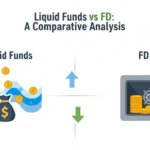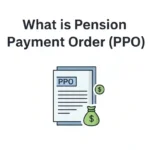Mutual funds aggregate funds from several investors to purchase a diversified collection of stocks, bonds, or other securities. Most investors appreciate mutual funds not just for appreciation in capital but also because they produce income through dividends. It is critical to grasp how mutual funds pay dividends if one is to make sensible investment choices.

What Are Dividends in Mutual Funds?
Mutual fund dividends are the payment of a share of the fund’s profits to its investors. These profits are derived from:
- Dividends Paid by Stocks: Most stocks pay dividends as a percentage of the underlying companies’ profits.
- Interest from Bonds: For bond funds, the interest received on bonds is also a source of income.
- Capital Gains: Mutual funds also distribute realized capital gains on sale of securities at times.
Shareholders can opt for receiving these dividends in cash or have them redeployed to the fund so that they are used to buy more units.
How Do Mutual Funds Pay Dividends?
1. Calculation of Dividends
Mutual funds calculate dividend payment from the proceeds of the investments underlying. In the computation:
- Total Earnings: Adding together all dividends, interest, and realized capital gain received by the fund.
- Distribution Policy: Utilizing the fund’s dividend distribution policy, which can be established to pay out a specific percentage of such earnings.
- Per Unit Dividend: The amount to be paid out is divided by the number of outstanding fund units, giving a per-unit dividend figure.
2. Declaration and Payment Process
Once the dividend amount is calculated:
- Declaration Date: The board of the fund declares a dividend on a particular date, referred to as the declaration date.
- Record Date: Investors holding units on the record date are eligible to receive the dividend.
- Payment Date: The dividend is credited to investors’ accounts on the payment date, either as a direct cash deposit or as additional units if reinvested.
3. Dividend Options for Investors
Investors typically have two choices when it comes to receiving dividends:
- Cash Dividend: The dividend is paid in cash, which can be withdrawn or invested elsewhere.
- Dividend Reinvestment: The dividend amount is automatically used to purchase additional units of the mutual fund, compounding returns over time.
Factors Affecting Dividend Payments
There are a number of factors that can affect the dividend payments from mutual funds:
- Fund Performance: A well-performing fund with steady earnings is more likely to distribute higher dividends.
- Investment Strategy: Funds focused on income-generating securities, such as dividend-paying stocks or bonds, tend to offer regular dividends.
- Market Conditions: Economic cycles, interest rates, and company performance can all affect the amount of income generated.
- Expense Ratio: Lower management fees can leave more income available for distribution to investors.
Tax Implications of Dividend Distributions
Dividend income from mutual funds is subject to taxation, which varies based on:
- Type of Fund: Equity mutual funds and debt mutual funds are taxed differently.
- Holding Period: In some regions, long-term dividends may receive favorable tax treatment compared to short-term dividends.
- Investor’s Tax Bracket: Your overall income and tax bracket will influence the tax rate applied to dividend income.
It is advisable that investors seek a tax advisor for information on how the tax situation specifically applies based on their economic condition and where they live.
Final Thoughts
Dividends can be an important part of your entire return on investment, particularly if you’re counting on them for income or reinvesting them to grow your wealth. Mutual funds provide the ability to select between receiving cash dividends or reinvesting dividends, based on your investment objectives. When assessing mutual funds, it is essential to take into account not just their past performance but also their policy on dividend distribution and the tax implications that come with it.
By knowing how mutual funds distribute dividends, you can make better-informed decisions and tailor your investment plan to achieve your long-term financial goals.
Frequently Asked Questions (FAQ)
How are dividends in mutual funds calculated?
Dividends are calculated by taking the total earnings of the fund—comprising dividends, interest, and realized capital gains—and dividing it by the number of outstanding fund units.
Can I choose how to receive my dividends?
Yes, investors can typically choose between receiving dividends as cash or opting for a dividend reinvestment plan (DRIP) to purchase additional fund units.
How often do mutual funds pay dividends?
The frequency of dividend payouts varies by fund and can be monthly, quarterly, semi-annually, or annually, based on the fund’s policy.
Do dividend reinvestments affect my tax liability?
Yes, dividends are taxable even if reinvested, although tax treatment may vary depending on the type of fund and your personal tax situation.
Are dividends guaranteed from mutual funds?
No, dividend payments are not guaranteed and depend on the fund’s earnings and the discretion of the fund manager.










